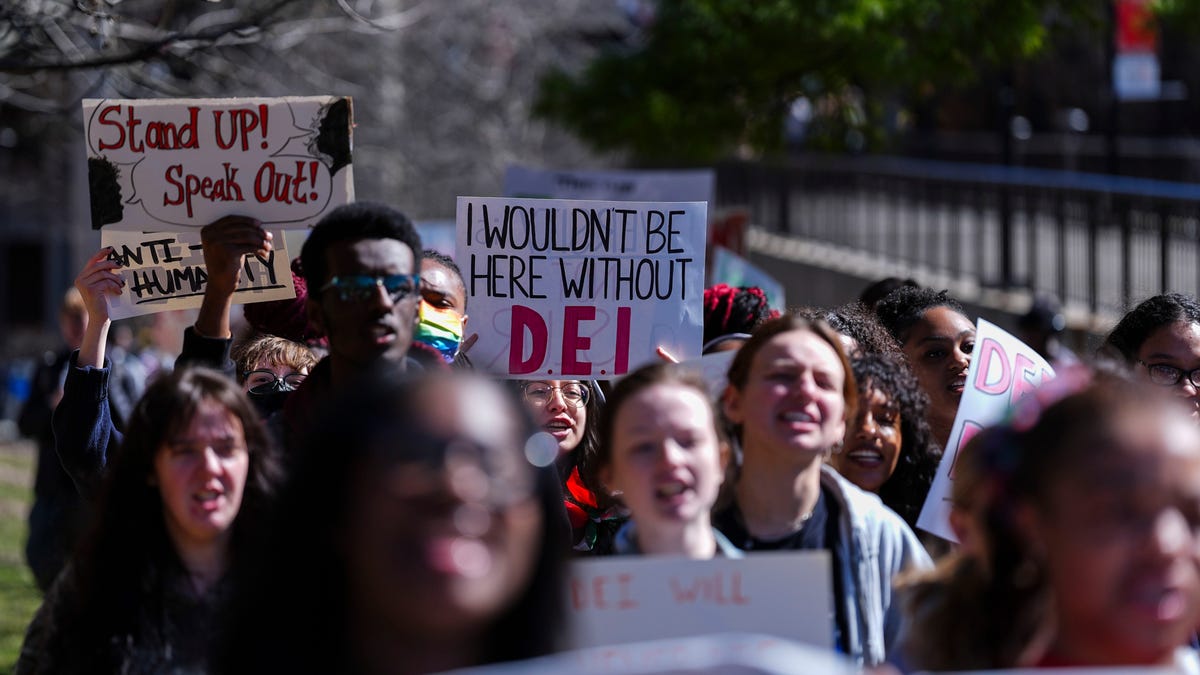
Workers seek flexibility as employers implement return-to-office mandates
Despite technological advancements and a preference for flexibility among American workers, employers are pushing for a return to the office.
Scripps News
Horrible bosses − the ones who lose their temper, shout at subordinates and berate their work − are bad for everyone.
On that point, the research is clear. And yet, some bosses continue to act out, perpetuating a legacy of managerial tongue-lashings that stretches from Steve Jobs to Gordon Ramsay to Donald Trump.
A team of researchers decided to find out why.
Here’s what they found: Many toxic bosses thrive on bullying. They think their tirades help the organization, rather than hurt it. They can ridicule an employee in front of the entire staff and feel good about it the next day.
“Afterwards, they may ironically feel more engaged. They feel more valuable at work,” said Joanna Lin, an associate professor of management at the University of Georgia’s Terry College of Business.
Lin and two colleagues put their findings in a new article, published online in May in the Journal of Management.
Past research has proven that bullying bosses cause more harm than good, according to Lin and other management experts.
“There’s a lot of evidence that this type of negative behavior can have bad consequences for organizations,” said Maryam Kouchaki, professor of management and organizations at Northwestern University’s Kellogg School of Management. She was not involved in the new paper.
In such cases, toxic bosses often feel their bad behavior is legitimate and serves a worthy goal: Getting workers to shape up.
Why do bosses bully?
Up to now, Lin said, most scholars have assumed that toxic bosses act out unintentionally and by accident: They’re burned out, overtaxed or having a bad day.
“Previous research assumes that leaders engage in these behaviors because they are depleted, because they didn’t get enough sleep,” Lin said.
The new study explores an entirely different hypothesis: Maybe some bosses act out on purpose.
Some managers, the researchers found, turn to verbal abuse when they sense their employees are slacking off or doing sub-par work. Other times, bosses turn on workers because they feel their authority is threatened. They lash out to reassert, “I’m the boss here,” Lin said.
Bosses who verbally abuse employees because they’re tired or burned out generally feel bad about it, the researchers found. Bosses who lash out to get workers in line, by contrast, often feel a sense of accomplishment.
Other scholars hailed the study.
“It’s a new idea. It’s novel and it’s interesting and it’s important,” said Adam Galinsky, a professor at Columbia Business School and author of a new book on leadership.
Abusive bosses “feel good because they feel like they’ve acted like a boss should act,” Galinsky said. “Their behavior often has very immediate and transparent short-term effects.”
Do abusive bosses get results?
After a tongue-lashing from your supervisor, you’re likely to pick up the pace – at least while the boss is watching.
“It might work in the short term,” said Rick Larrick, a professor of management and organizations at Duke University’s Fuqua School of Business. “When you’re scared and someone is staring at you and yelling at you, you will work hard.”
But it doesn’t work for long. In the long run, researchers say, toxic bosses stamp out many of the qualities most valued in workers: Creativity. Initiative. Dedication. Honesty. Eventually, bully bosses drive good employees away.
“Punishment strategies are good in the short term and kind of bad in the long term, because it leads people to want to get out of the situation, and to try to avoid that person and that job,” said Larrick, who wasn’t part of the new paper.
Speaking of jobs: Larrick and other experts believe many abusive bosses take their cue from tough-talking corporate icons, a list that includes President Trump and Apple co-founder Steve Jobs. Trump’s social-media rants are legend. Jobs had an infamous temper.
“Everyone thinks, ‘Well, I should copy Steve Jobs,’” Larrick said.
They forget that Steve Jobs was a once-in-a-generation technical genius.
“Steve Jobs succeeded despite the fact that he beat up people,” Larrick said. “You’re allowed to beat up people,” he joked, “as long as you’re as smart as Steve Jobs.”
Popular culture celebrates caustic bosses
Literature, television and cinema offer countless examples of abusive bosses who make it big. Reality shows such as Gordon Ramsay’s “Hell’s Kitchen” are built around temperamental bosses, even if much of the abuse is for show. Basketball documentary “The Last Dance” portrays hoops legend Michael Jordan mocking and berating his Chicago Bulls teammates even as he led them to historic victories.
Workers might endure a trash-talking supervisor who can score 69 points in a basketball game. But in the hands of an average, workaday boss, the same behavior tends to fall flat.
“I think it’s that combination of you being abusive, and you yourself not walking the walk,” said Larrick of Duke.
All of the examples above involve men, but the new study found that female bosses can be equally toxic.
“Anyone can engage in these behaviors,” Lin said.
The research drew on surveys of hundreds of supervisors across a range of fields. At one point, Lin and her colleagues tracked the behavior of abusive bosses on 15 consecutive workdays. They found striking examples of managers justifying abusive behavior.
One boss in the study said, “Some people just don’t know how to work hard and need to hear some harsh words to snap them out of being lazy.”
Another supervisor acknowledged yelling at a subordinate who hadn’t listened to instructions. “Talking to him nice didn’t work,” the boss said.
The point of the research, Lin said, is to explain why so many bosses persist in toxic behavior, despite ample evidence that it can poison a workplace.
“We all know that it doesn’t work,” Lin said. “It’s important for leaders to acknowledge that.”









